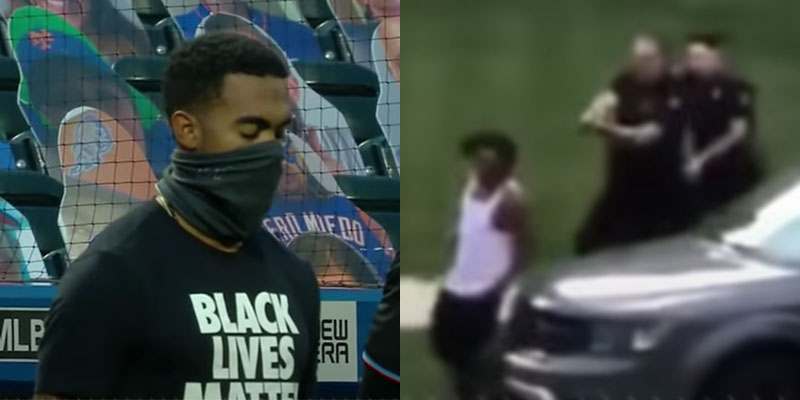The police shooting of Jacob Blake in Kenosha just months after the death of George Floyd sparked new protests. The video appears to clearly show another excessive and unnecessary use of force. What can we do to enact the reforms needed to curb police misconduct?
Numerous sound reforms have been offered. Secrecy laws protecting officers’ duty records could be relaxed to stop hiding officers with multiple misconduct complaints. The ability of police unions to protect the bad apples to the membership’s detriment could be curbed.
We could also reduce the number of laws the police must enforce. An officer never knows when an encounter could become life-threatening. Consequently, officers might misinterpret erratic or nervous behavior as threatening or mistake a cell phone for a gun. Research by economists shows that likelihood of deadly violence in a police encounter does not depend on a subject’s race; the greater rate of minority deaths stems from more frequent stops and arrests. Systemic racial bias appears to be in the types of activities criminalized.
Lawmakers could also end qualified immunity, the doctrine under which government employees cannot be sued for doing their jobs. Only where courts create exceptions do government officials face civil liability. Qualified immunity has protected a prison guard who tased an inmate in his cell and a cop who shot a child while trying to shoot a non-threatening dog.
Civil suits provide an alternative to criminal prosecution. Prosecutors are reluctant to file charges against officers and jurors often give police the benefit of the doubt. Lawsuits would make cities pay for bad cops like Derek Chauvin, who had over a dozen complaints against him before he killed George Floyd.
The bigger challenge is enacting reforms. Politicians dutifully promise change after each high-profile case. The lack of change fuels the frustration we have witnessed this summer, reflected in the slogan, “No justice, no peace.”
Ours is a government “by the people,” so what responsibility do we bear then for police misconduct? I study public choice economics, which examines how the information and incentives of votes, politicians and bureaucrats together produce policy. One important insight is how citizens individually do not decide outcomes. No one changes an election with their vote or can induce lawmakers to pass a bill by writing a letter. How exactly citizen sentiment drives government policy is complicated; there is no switch to flip to enact police reforms.
The week following Jacob Blake’s shooting offered two paths toward reform. The first is increasingly violent protests. Of course, most protesters over the past three months have not engaged in violence. A clear line can be drawn; as Democratic presidential nominee Joe Biden said recently, rioting, looting and setting fires is not protest.
Does a failure of politics as usual justify violent protests? This question is more philosophic than economic. I can offer two observations. Many Minneapolis businesses burned this summer were owned by recent immigrants from Ethiopia and Somalia. The owners were not part of any inner power circle, if you happen to believe that inner circles run things. And violence exacerbates the fears of crime and demands for “law and order” which lead to disregard of police misconduct.
Boycotts staged by players in the NBA, WNBA, NHL and MLB offer a second path. Several prominent NBA players reportedly favored boycotting the rest of the season. I find sports boycotts a better alternative. They send the message that normal life will not continue without meaningful reforms without destroying small businesses which families rely on for their livelihoods.
The average sports fan is not part of any inner power circle, and sports are providing emotional sustenance during the COVID-19 pandemic and recession. Are sports boycotts therefore unfair? Perhaps, but team owners and their corporate partners likely have significant political influence. And inconvenienced sports fans should remember that George Floyd will never watch another game.
The excessive use of force by the police is ultimately done on our behalf. To disown the acts of rogue police officers, we must accept that life cannot be normal until reforms occur.
Daniel Sutter is the Charles G. Koch Professor of Economics with the Manuel H. Johnson Center for Political Economy at Troy University and host of Econversations on TrojanVision. The opinions expressed in this column are the author’s and do not necessarily reflect the views of Troy University.
Don’t miss out! Subscribe today to have Alabama’s leading headlines delivered to your inbox.
